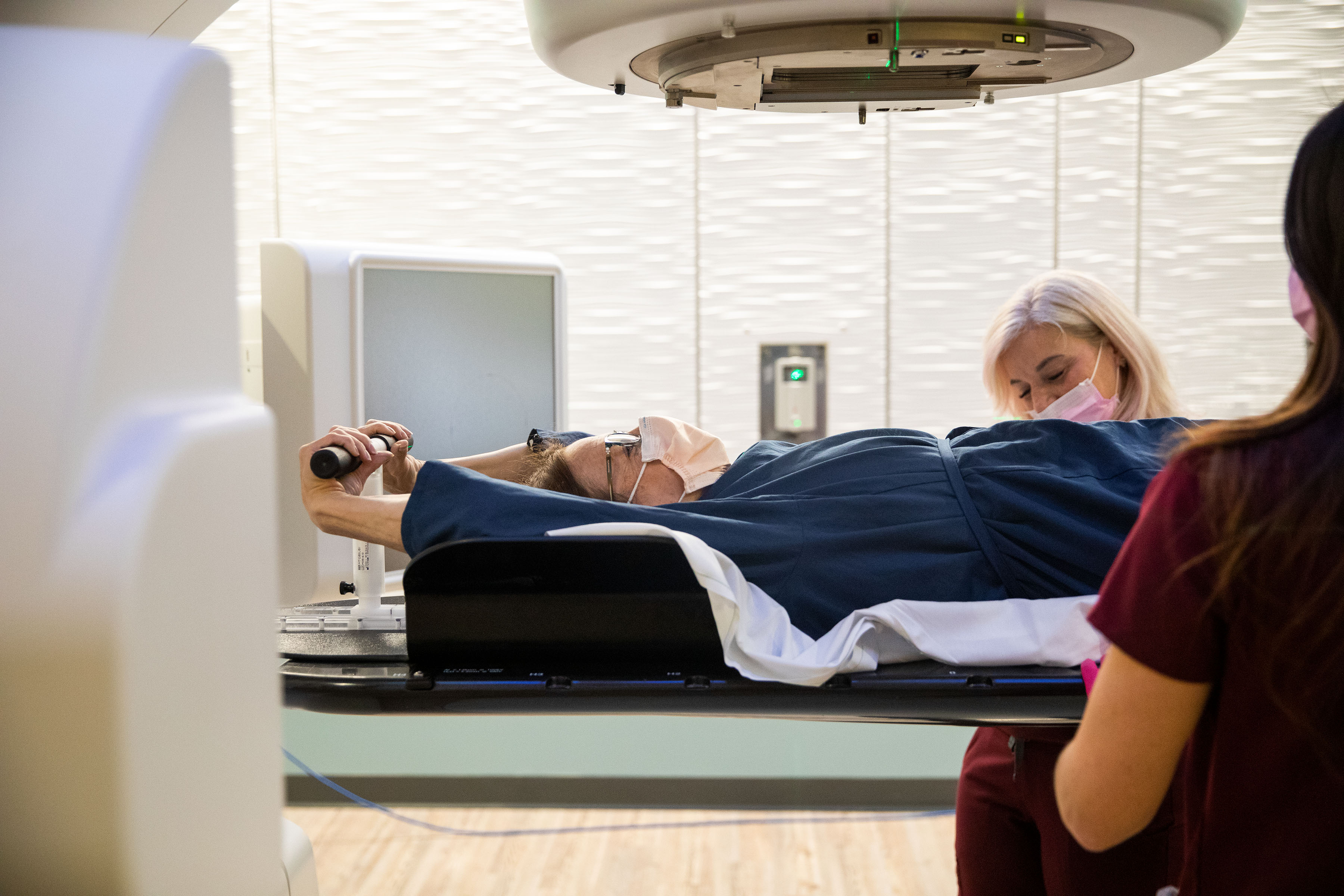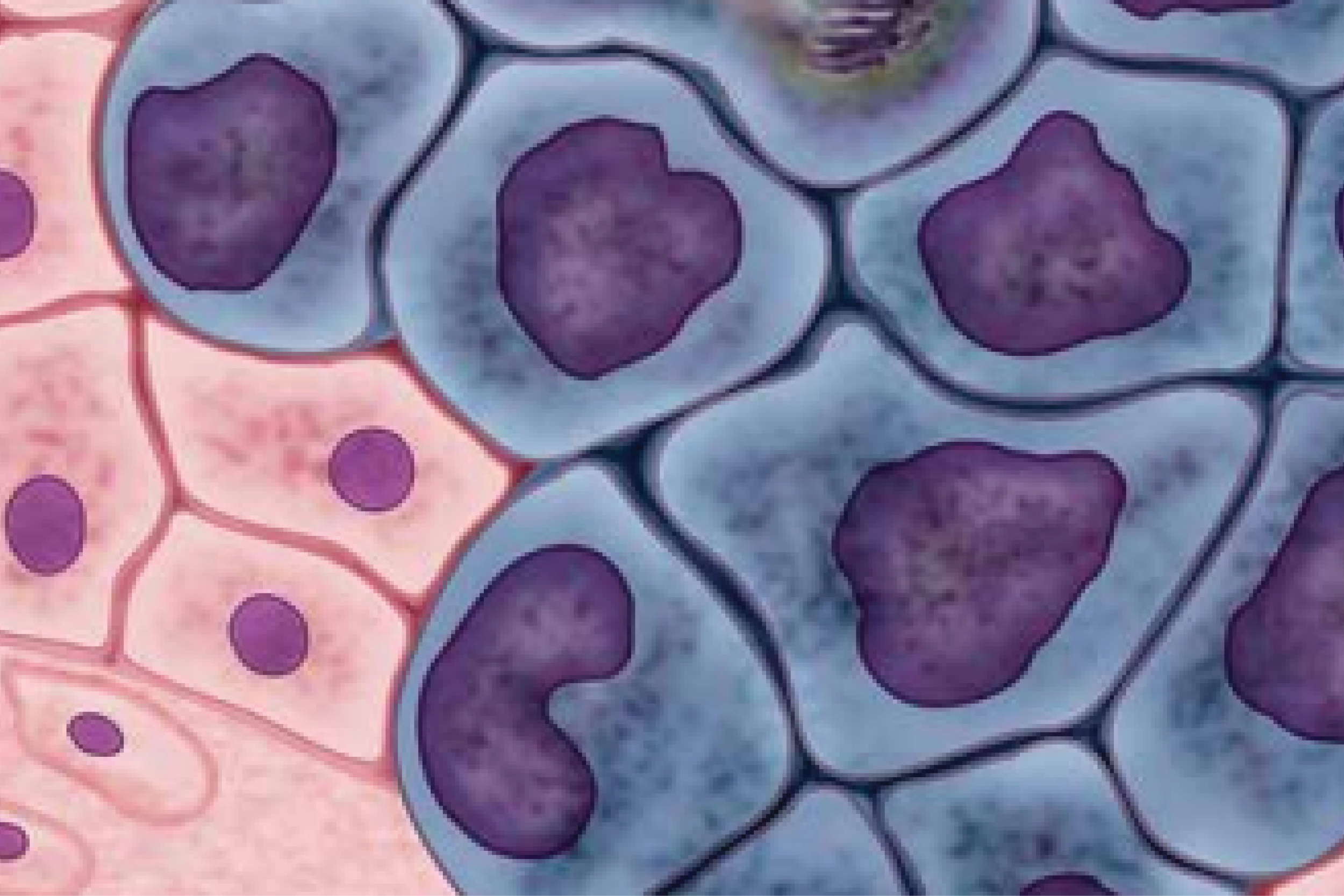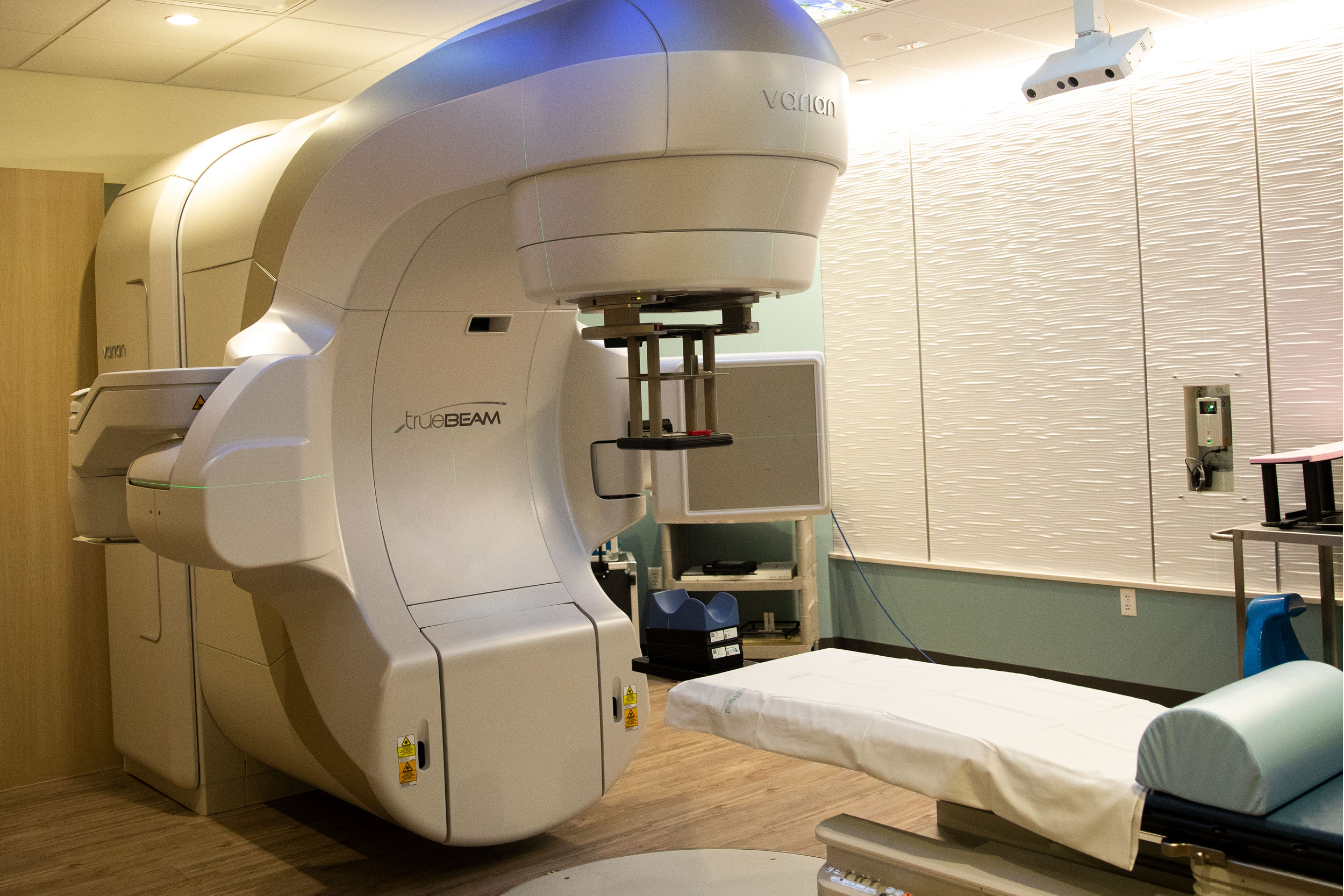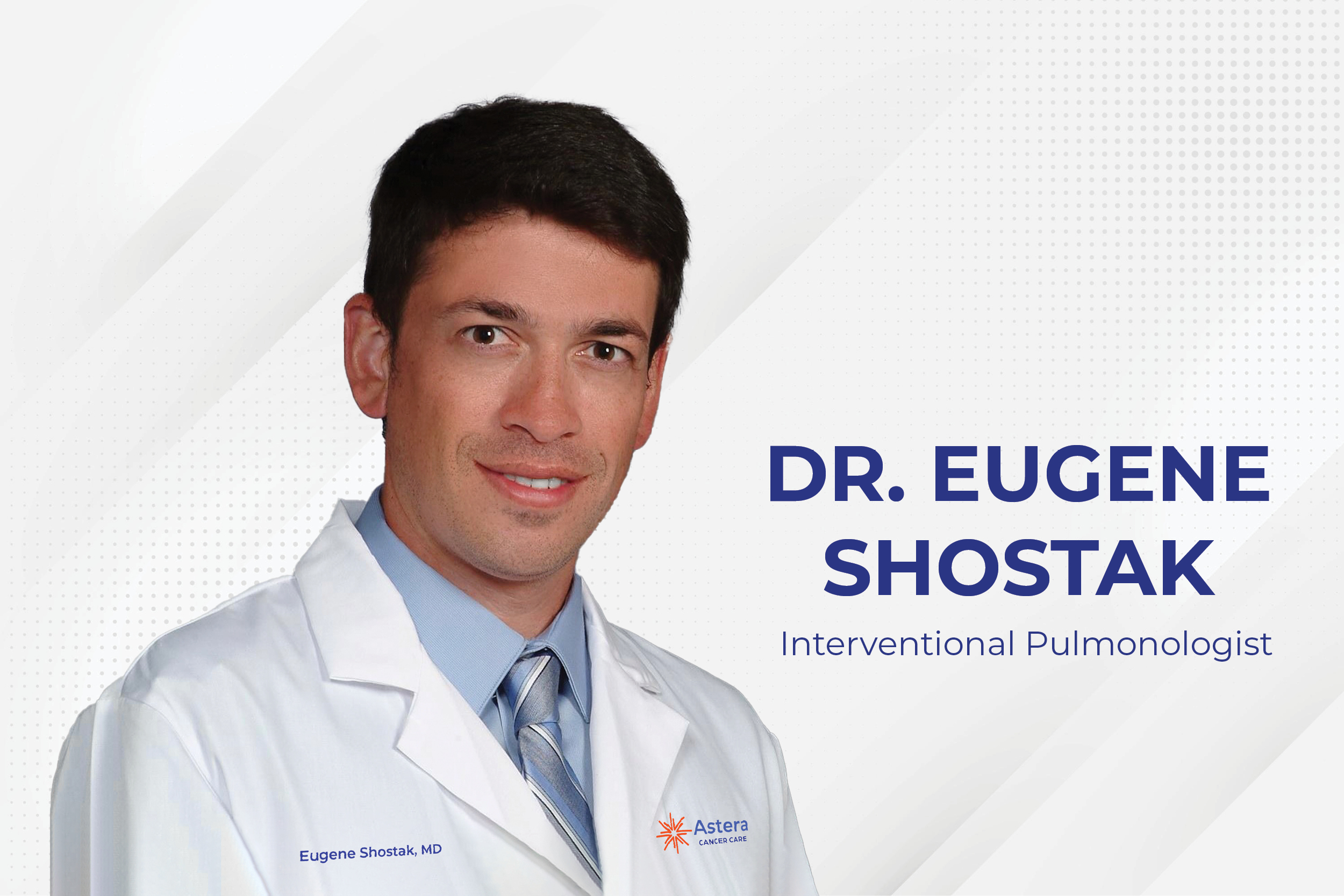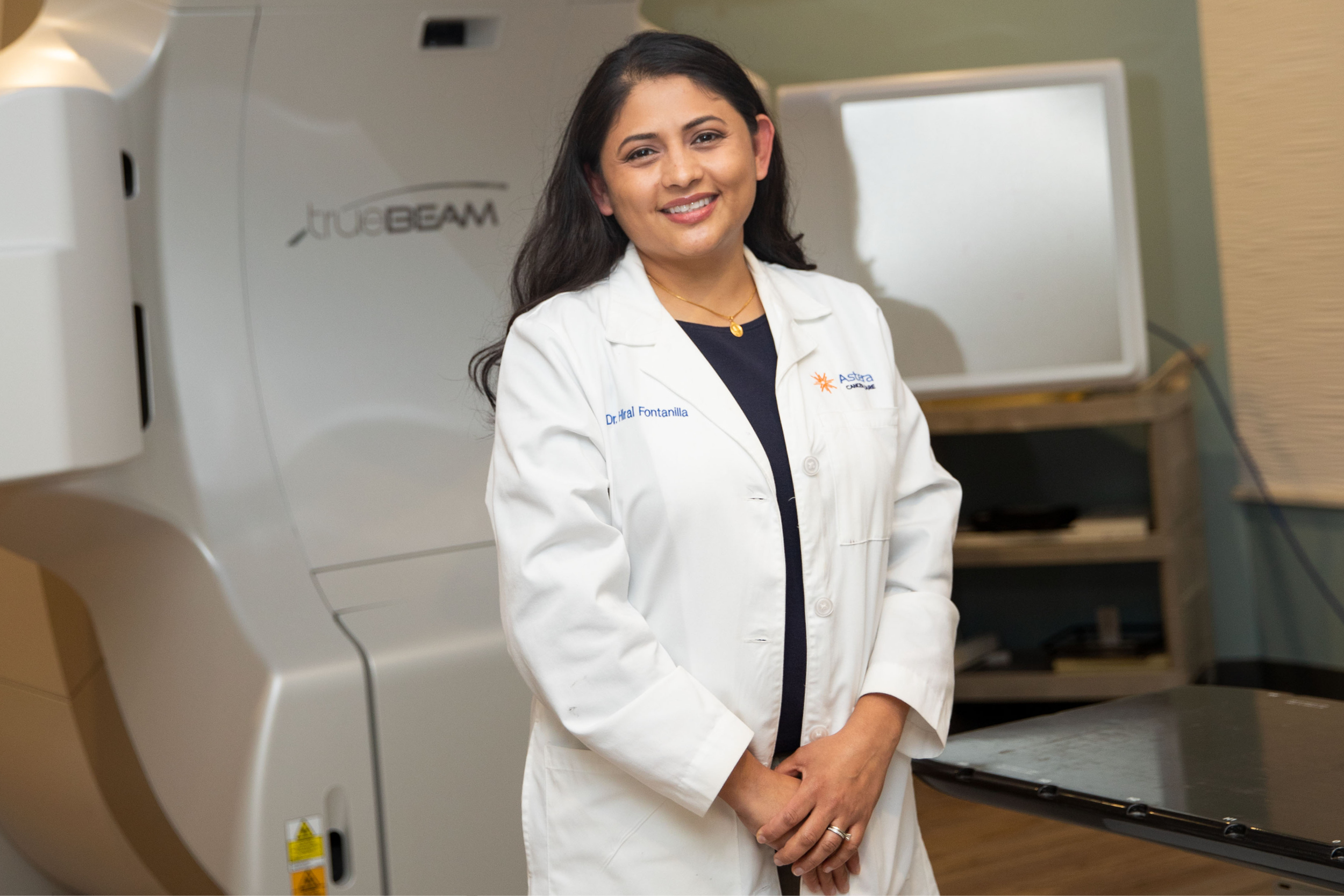News & Events
Research and Clinical Trials
Astera started its research program in November 2019. In the beginning, their team had one dedicated staff member, Percy Yeung, with two clinical trials. However, under Dr. Bruno Fang’s guidance and support from our providers and clinic staff, we are now offering over 25 clinical trials to our patients with four dedicated staff members.
Read MoreTreating the breast and sparing the heart
Breast cancer survival has steadily increased due to earlier detection, decreasing morbidity from surgery, more effective therapies, and advances in radiation delivery.
Read MoreSocial Work
Social work helps patients and their families cope with cancer and its many challenges by providing concrete or supportive services.
Read MoreThe Benefits of Radiation Therapy for Skin Cancer
Radiation therapy is a highly-effective, non-surgical treatment option for both basal cell and squamous cell carcinomas.
Read MoreProstate SBRT in 5 Fractions
Stereotactic Body Radiotherapy (SBRT) is an emerging treatment modality with excellent control rates for low and intermediate-risk prostate cancer. It is a precise, high-dose form of radiation therapy that allows physicians to treat cancer in just one to five treatments.
Read MoreRadiation For Skin Cancer
After having difficulties wearing particular shoes, Anna noticed a mole on her lower left ankle, a big issue considering her love for shoes. So she decided to see a dermatologist. The dermatologist biopsied the mole, which confirmed it was cancerous. At 90 years old, Anna was diagnosed with skin cancer.
Read MoreLifelong Learning Improves Patient Care
As a physician-scientist and medical oncologist, Beiqing Pan, MD, PhD, has forged a unique path in oncology.
Read MoreUsing NK Cells to Fight Pancreatic Cancer
Astera Cancer Care announced that it has treated its first patient in the QUILT-88 trial using a combination therapy developed by ImmunityBio designed to bolster the body's immune system and administer natural killer cells engineered to find and kill cancer cells.
Read MoreDr. Eugene Shostak
Dr. Shostak is one of few pulmonologists nationwide who is formally trained in rigid bronchoscopy and treats complex airway disorders such as tracheal stenosis, tracheobronchomalacia, and airway obstruction.
Read MoreStereotactic Body Radiation Therapy (SBRT) for Lung Cancer
The role of radiation in curing early-stage lung cancers has expanded significantly over the last decade. Technological and radiological advances in radiation oncology have forged the development of stereotactic body radiation therapy (SBRT), also known as stereotactic ablative radiation therapy (SABR).
Read More

